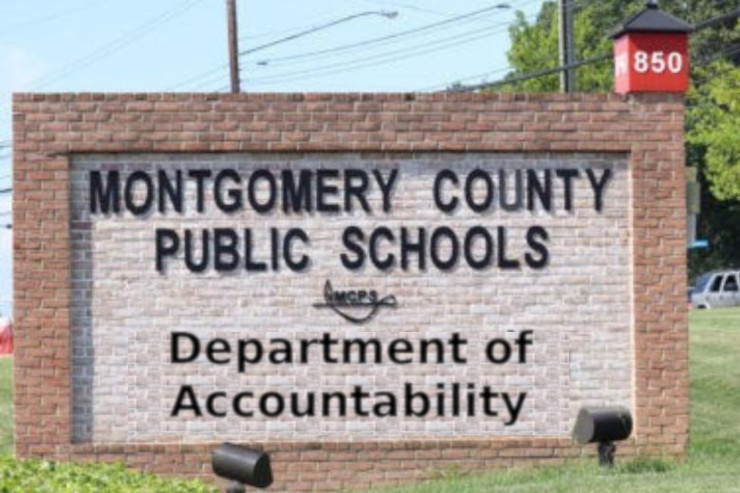The County Council, County Executive, and MCPS are placing its residents in a moral and financial bind. On the table, there appears to be a dialectical dilemma: our children’s future or fiscal prudence. However, an honest discussion regarding fully funding MCPS above and beyond historical trends demands that we resolve the following questions:
How can we justify raising taxes to do so when state test scores show marginal gains in reading and math scores?
Should MCPS be rewarded with an increase of 10.02% over the approved FY25 Operating Budget when they inched upwards only 0.9 percentage points in reading for all students from 2023 to 2024?
Should a public school system that is held nearly entirely unaccountable to improving academic standards, where only 55.3% are proficient in reading and 33.4% of our students are proficient in math, pull ever more taxpayer dollars out of our pockets when they produce such abysmal results?
The answer to each of these questions is simple: Our commitment to raising academic standards requires attaching performance metrics to any future MCPS budget, no matter if the system is fully funded. Regardless of whether you are a Republican or Democrat, Montgomery County residents are furious over tax hikes, regressive fees, and electricity bills skyrocketing, all imposed by our not-running-for-President Governor Wes Moore. We are getting so much less while they take so much more. Now we are also being asked to blindly hand over cash to the state’s largest public school system in the hopes that they will meet the academic needs of our children without any attached demands.
Councilmembers outright admit that County Executive Elrich’s proposal to raise our local income taxes to fully fund MCPS is unfeasible and irresponsible. As Councilmember Marilyn Balcombe stated, “a leap of faith… without knowing the outcome” is an unreasonable request with our local economy in decline. Even with the Education Committee recommending fully funding MCPS, many councilmembers are concerned about the impact raising taxes would have on residents. Without a doubt, the era of rubber stamping MCEA’s push to fully fund MCPS budget proposals without attaching performance metrics must end with this County Council vote.
So, is it possible to help our students reach their full potential under such a crunch? Yes! By tying accountability to funding. Texas, for example, required gains across all demographic subgroups—so schools couldn’t succeed by only helping theeasiest-to-teach students. High-poverty schools were offered additional support to meet targets and improve instruction. As a result, Texas saw significant gains among African American and Hispanic students on the NAEP reading and math assessments during the 1990s to 2000s.
More recent and significant is the example of the Southern Surge. Mississippi, Louisiana, Tennessee, and Alabama stand out for reading growth, on the 2024 NAEP despite the scourge of COVID lockdowns on student learning. Mississippi and Louisiana are #1 and #2 in 4th grade reading when adjusted for demographics. All four states made targeted investments in teacher training and curriculum improvement. Together, these states send a clear signal that we can raise reading outcomes through clear, proper funding aimed at reaching performance metrics.
For example, teacher professional development in Louisiana was strictly directed towards curriculum-specific training. Louisiana’s Professional Learning Partner Guide listed vetted options and grant opportunities tied to using providers from that list. Yet, this idea did not just come out of the blue. Over the course of two decades, Louisiana cultivated a strong system for holding its schools accountable. Even more rigorous set of standards will also be taking effect in the 2025-26 school year. Considering our tightening budget, MCPS should only fund professional development opportunities which directly lead to improved student reading, writing, and math outcomes. Anything outside of that box must be tossed aside.
Mississippi also stands as another rising star for MCPS to follow. In addition to encouraging districts to adopt proven reading curriculum, professional development centered on coaching and paired training for that specified curriculum. Teacher training was streamlined, focusing only on application of proven methods. Mississippi also worked to establish a baseline level of resources that required every district to effectively operate schools and provide students with an “adequate” education. Schools with greater needs were allocated additional resources. It is clear– the County Council must direct MCPS to channel dollars towards specific and proven initiatives by attaching performance metrics.
County children deserve to attend a school system that is fully accountable on both the educational and financial front. The Montgomery County Council, therefore, faces a pivotal decision: whether to fully fund MCPS at historically high levels despite minimal academic progress. With only marginal improvements in reading and math scores, the public is rightfully questioning the wisdom of increasing the MCPS budget by over 10% – through a tax hike– without demanding measurable outcomes. The Southern Surge proves that student achievement will grow through targeted, metrics-driven funding andprofessional development. The County Council must require MCPS to adopt a performance-based approach to justify further investment. From now on, we must attach academic metrics to future MCPS budgets to ensure responsible use of taxpayer dollars. Providing a proven path towards academic excellence for all of our students demands it.
[Brenda M. Diaz is a former MCPS teacher and previous candidate for Board of Education. She is a veteran educator with over 2 decades of experience teaching across various educational settings, from preK to 12, ESOL to AP. She served as an administrator, presented at regional conferences & coached JV Softball at Gaithersburg HS. Raised in The Bronx by Puerto Rican parents, she benefited from a gifted program that led her to graduating from Georgetown University’s School of Foreign Service, earning a Master’s from George Washington University and becoming a James Madison Memorial Fellow. A passionate life-long learner, her current students benefit especially from her love of American history, government, and international studies. Follow her on X @BrendaMDiaz4BOE.]




